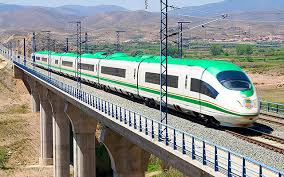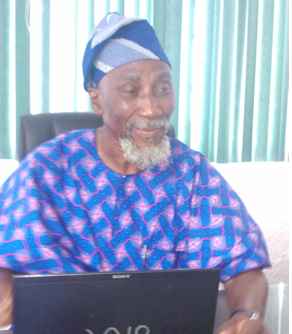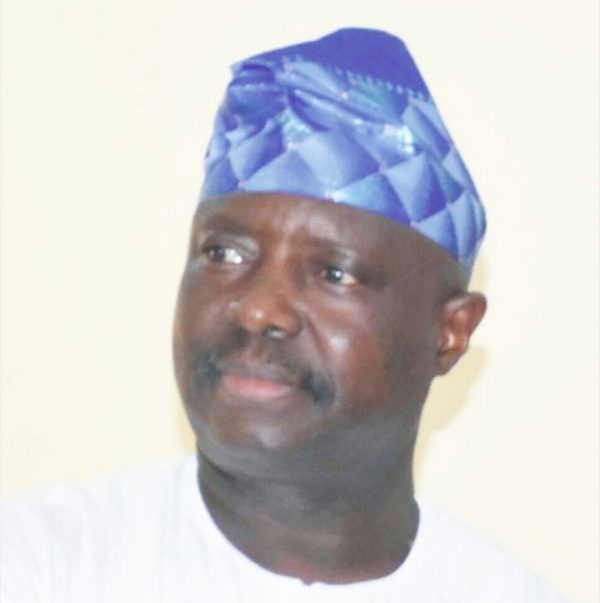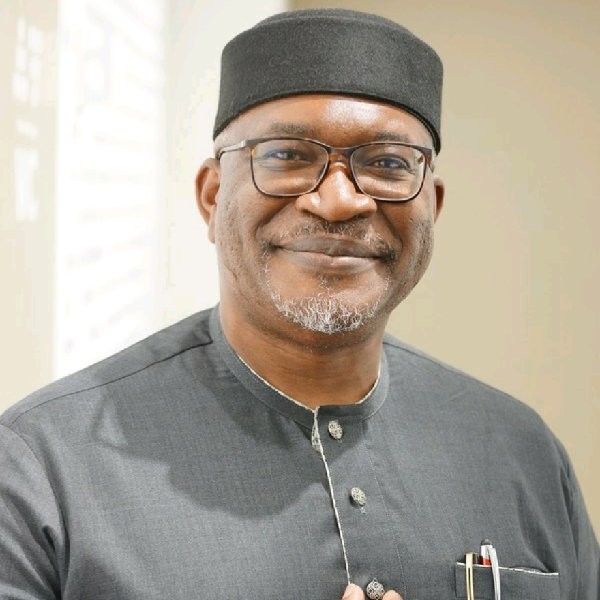Nigeria’s Rail Economy: Avoiding Our Mistakes With The RITES

By Okey Mark
Recently, President Muhammadu Buhari finally inaugurated the 326 kilometre-Itakpe-jaokuta-Warri rail line for commercial operation, 30 years after the project was conceived.
The development came with huge economic relief to host residents as rail transportation system had in the past played a significant role in economic and cultural integration of the country.
The president had during the virtual inauguration of the rail line, further directed the Federal Ministry of Transportation to link all the nation’s seaports of origin and destination including Apapa, Tin Can, Warri, Onne, Calabar ports to the rail network in order to significantly improve overall transportation and economic capacities.
According to him, the project will, “link people across the cultural divides and expand the frontier of trade and commerce, which will lead to better standards of living for our citizens.”
Buhari said: “Accordingly, I have approved the prioritisation of viable railway routes for either new rail lines or the reconstruction and rehabilitation of some, to achieve effective and efficient train services supporting the country’s trade and commerce.
”The railway infrastructure that I have the honour to commission today is the rail line from Itakpe via the steel town complex of Ajaokuta to Warri, and it is an important link for the country’s economy as the central rail line.
”This government has also approved to link this line further from Itakpe to Abuja, thereby connecting the Northern zone of the country and also extending southwards to link the Warri ports”.
As Federal Government embarks on this ambitious rail development, it has not factored in clear terms, maintenance culture and sustainability plans beyond the Chinese expertise. This omission created decadence in the sector with the Indian RITES(Rail India Technical and Economic Services) contracted in the 70s under the military regime to manage the Nigerian Railway project.
Constructed and managed from 1898 to 1960 by British colonial authorities, the rail infrastructure inherited at independence was old, dilapidated, inefficient and grossly inadequate to address the population explosion and modern business demands. Instead of transforming the infrastructure, the then successive Nigerian governments neglected it in favour of road transport development as the rail subsector was grossly mismanaged.
However, with time government was constrained to invte RITES who were able to carry out changes as staff training, construction of staff quarters, repairs of locomotives and wagons, relaying of tracks, promotion of staff, establishment of financial accountability, increase in freight and passenger traffics, among others, but they did not radically transform the colonial relic as their terms of engagement was limited to rehabilitation of operations and infrastructure.
There was no known technology transfer pact or modern business sustainability model. If government had however continued on the reforms, where the RITES stopped the rail industry would not have collapsed in the 1990s. The RITES were signed on between 1978 and 1982.
The hue and cry of Nigerians over the rail project loans from China would not have arising if there were business models that could guarantee the repayment of the loans from the rail management proceeds. The rail sector requires more investments and management of routes by private sector to guarantee loan repayment and business sustainability.
The contract for Itakpe – Ajaokuta – Warri railway project which was handled by reputable Chinese construction firm, China Civil Engineering Construction Corporation (CCECC) Nigeria Limited as the major contractor- was first awarded in 1987 and initially scheduled to have been delivered within five years.
But the project was abandoned for about 30 years due to funding constraints after about 254km had been constructed. The railway line would have been the first standard gauge railway line in Africa if it had not been abandoned in 2009.
According to the Managing Director of CCECC Nigeria, Michael Jiang, the Itakpe- Warri railway line remained critical to the actualization of the vision to modernize the railway transport system because it is the central line connection the south and the north.
He said the completion of the project marked the revival of railway operations from Itakpe to Warri, which will tremendously boost the socio-economic activities not only in the area, but also in the Southern and Northern parts of the country.
He added that the project, which involves the rehabilitation of the tracks, construction of 11 modern stations and railway ancillary facility yard was commenced in 2017 due to the commitment and unflinching support from the present administration, leading to the success story.
He said: “It is our hope and desire to continue to partner with the present administration in the massive work going on in the railway sector. We will continue to offer our best services and cooperate with the present administration in its desire to link all parts of the country to the national railway grid.”
He expressed gratitude to Buhari for the opportunity to be part of the railway revolution in the country as well as the Minister of Transportation and his team of engineers and administrators who worked tirelessly with the company to ensure that the project is realised.
According to him, the project will assist the country in meeting its medium and long-term railway development plan, which will further boost the local economy adding that the company will continue to leverage its advantage and deepen cooperation and strive to achieve a win-win development for the country.
Jiang added that the company had consistently adhered to the concept of “Stride with Nigeria” and had made outstanding contributions to local Infrastructure construction over the years especially during the COVID-19 pandemic.
He said CCECC had continued to thrive through the difficulties times with contributions to ease the effect of the pandemic and to promote the development of the local economies in which it currently operates.
Analysts, however, believed the railway project will have ripple effect on the economy, particularly, the compliance with local content requirement and the potential for technology transfer to Nigerians.
Speaking in an interview, Professor of Capital Market and President, Capital Market Academics of Nigeria, Prof. Uche Uwaleke, said a project such as the Itape-Warri railway will create alternative and cheaper means of transport, reduce pressure on the roads as well as money spent annually on road maintenance and add to the transport GDP.
He said: “Unlike several other capital projects, railway constructions are usually massive and involve huge material and human resources. So to begin with, it will provide a lot of job opportunities given that a certain proportion of local content will be required.
“Again, cheaper means of transporting people and goods helps to reduce inflationary pressure occasioned by rising cost of commodities.”
According to the former Imo State commissioner for finance, experience has shown that mini cities usually spring up at railway stations along the route thereby promoting economic activities and lifting residents from poverty. Also, property values along the route appreciate creating wealth for owners.
“It goes without saying that having many standard gauge fast trains in Nigeria will promote trade and tourism, facilitate the development of Export processing zones and by extension the diversification of the nation’s economy.”
On his part, Associate Professor of Agricultural Economics at University of Port Harcourt, Anthony Onoja, said the Itakpe-Warri rail would expedite the haulage of raw materials for the steel company in Ajaokuta, while finished products from the industrial zone of Ajaokuta will be cheaply and conveniently shipped to the Southern part of the country adding that the export market will also benefit.
He opined that with the rising cost of petrol in Nigeria and given the enormous benefits of railway systems to national development, the federal government should not hesitate in expanding the investment in railway system in the country.
Onoja said: “The relevance of railway to economic development was well understood by our past colonial masters. Through railway haulage of agricultural commodities such as groundnut, cotton, oil palm produce, cocoa, coffee timber, livestock/hides and skins to the ports were made from where they were exported to Europe where they were further processed and the finished products imported through the same ports to Nigerian markets.”
He said: “The railways were also used in hauling mineral resources such as coal, tin and columbite from the mines in various parts of the country. These resources were the bedrock of the economy before crude oil was discovered in Nigeria.
“Besides, human commuting was efficiently done with railways. The supply chains of major commodities are undisrupted with an efficient railway system. With the rising levels of insecurity and very bad roads across Nigeria the most sustainable transport means that Nigeria should develop is railway system, especially modern ones. They help facilitate trade, industrial development and efficient communication, which in the end will result in economic growth.
“Perishable raw materials for industries brought in by roads are more vulnerable to wastage than those carried by trains with modern storage facilities. The cost of transportation by railway still remains the cheapest and it is safer compared to road and air transport. The Abuja – Kaduna road has eased off traffic on the road to Kaduna and this will also help reduce road accidents, kidnappings/robbery as well as greenhouse emissions from cars and lorries, the major cause of climate change.”
Also, former Director General, Abuja Chamber of Commerce and Industry (ACCI), Dr. Chijioke Ekechukwu, said an effective rail system provides a veritable means of transportation especially for goods from one part of the country to another and helps to reduce pressure on the roads and preserve same over a long period.
He, however added that, “I don’t belong to the school of thought that thinks railway construction is a priority, especially within this period of economic crisis. The billions of dollars deployed to construction of railway transportation should indeed have been used for some other priority areas that can increase food security, build more factories and create more job opportunities.
“We are borrowing heavily to do this and also borrowing heavily to service the loans. The debt profile could actually be limited to only necessary infrastructure. Our revenue base is so meagre to handle this size of elephant projects. In my opinion, it is not a priority.”
The central rail line is located within the central region (middle belt), through the South-south regions of Nigeria, Spanning Kogi, Edo and Delta State.
It originates from Itakpe, Kogi State to Ajaokuta, passing through Uromi in Edo State and Agbor, South-south and terminate at the Sea Port in Warri, with 10 stations along the line.
The Minister of Transportation, Mr. Rotimi Amaechi, however, said the project was fully funded by the Nigerian government, adding that eight of the 10 stations on the line were in the Niger-Delta/South-South region of the country.
He said: “There is no loan on this project; it was funded from the budget and I had the directive of the president to go and revive it and complete it as soon as possible.”
According to him, the project had commenced under the military era in 1987 but “underwent protracted hiccups, prolonged abandonment and massive vandalisation,” before it was resuscitated by the Buhari administration.
Project Public Relation Officer for CCECC Nigeria, Mr. Ekpenyong Ekanem, said the completion of the project marked the revival of railway operations in the country, between Itakpe and Warri stressing that, “This rail line is a good source of revenue to the federal government, as the central rail line is projected by the Nigerian Railway Corporation (NRC) to generate an annual revenue of about N3 billion, which is double of what the Abuja – Kaduna rail generated in 2019, N1.5 billion annual returns, this is a good source of internally generated revenue to the federal government.”
Commenting on the local content aspect of the project, he said many Nigerians had benefited from skill transfer and development schemes of CCECC.
He explained that the “beneficiaries include those in direct employment of CCECC, and those in other organisations relevant to the operation and maintenance of the railway, as well as selected members of the host communities. Nigerian employees were sent on courses and training seminars, as part of the manpower development initiative of CCECC so that Nigerians will be able to better manage the rail operations and its maintenance requirements.
In a testimonial, a Civil Engineering graduate of Afe Babalola University Ado Ekiti, Daniel Obekpa, said the project had “developed both my personal and professional skills, this project taught me to be proactive, more resilient, determined and the ability to proffer solutions to challenges that seemed impossible.”
Also a civil engineer from the University of Lagos, Akinrele Temitope Oyewole, said: “As a result of my fortunate involvement in the execution of the project, I have learnt, unlearnt and am re-learning various construction, professional, interpersonal and management skills that have proved useful in my approach to the job and profession as a whole.
“I have been sponsored on trainings and seminars by my company to acquire more skills, especially on topics ‘Reducing Costs and Improving Quality of Engineering Projects’ and ‘Effective Supervision of Contractors and Consultants on Government Projects and the Roles of In-house Professionals’, both of which were conducted by “Techgrade Consulting” in collaboration with the Nigerian Society of Engineers (NSE).”
Also, millions of indirect jobs are believed to have been created in the duration of the project and with the commercial operations of the railway fully activated, the economic benefits will be enormous.
In a country with huge technical skills deficit, knowledge and technology transfer from China to Nigeria especially through railway project is of immense benefits to the economy.
This is particularly so as the country has continued to rely on foreign technical partners to execute basic projects.
Avoiding the mistakes of the past in rail reengineering in Nigeria is key to achieving the desired economic prosperity the rail subsector will offer. If not well managed, the exercise could end up benefitting the expatriates more through job creation and capital flight as witnessed with the RITES.







